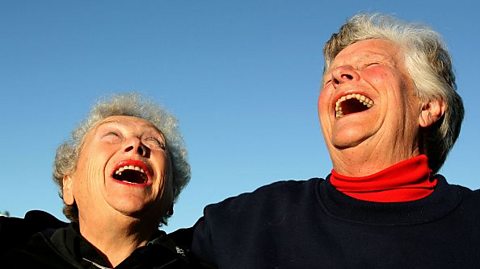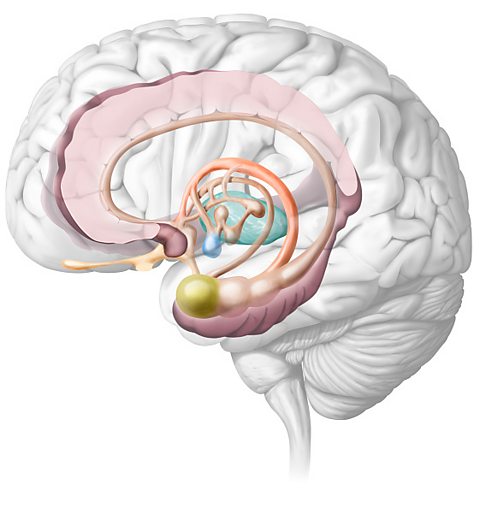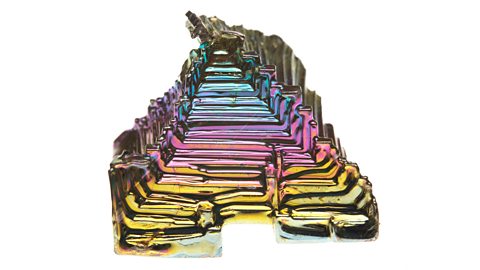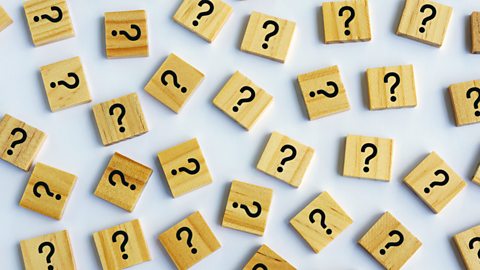Not every species has the capacity to chuckle.
Chimpanzees can. Scientists have even produced what sound like titters from rats by tickling them.
But it’s human beings and other primates who are considered to be the only ones capable of responding to something they find humorous with a giggle.

Although it’s a sign of having a fine old time, a good laugh is one of the most complicated things our bodies produce. Here’s why.
It all starts in the brain
We don’t choose to laugh. Even if we’ve paid to watch live stand-up from a favourite comedian, we’re actually taking a gamble. If we laugh at a joke during the show, it’s involuntary, based on how our brain processes what we see and hear. It’s very difficult to pretend to laugh or force a guffaw - try it for yourself. It doesn’t sound genuine, does it?

There is no scientific consensus on what makes us laugh but it is thought the frontal lobe at the very front of the brain, which determines our emotional responses, plays a part, along with the limbic system.
The frontal lobe is split into two halves, the left and the right. The left is the practical side and works out if the sounds and images we’re experiencing are a joke or not. The right side is the creative half and determines if we actually find the joke or situation funny or not.
The frontal lobe cannot start our laughter off though. That’s up to the limbic system, located beneath the cerebral cortex. The limbic system handles basic emotions such as fear, anger and pleasure, and once it gets the message from the frontal lobe that we need to laugh at something, it sends another message out which sets the physical process of laughter in motion.

It can help you lose weight (a bit)
Laughing is a micro-workout (emphasis on the micro). One study found that 10 to 15 minutes of laughter can burn up to 10 to 40 additional calories each day. So it’s got to be REALLY funny before you notice the pounds dropping off.
While it may not rival the latest diet fad, a good giggle does have an extraordinary effect on the entire body. It causes 15 facial muscles to contract, changing our expressions. You will also use muscles in your arms, legs and torso. The most noticeable effect comes from the stimulation of the zygomatic muscle, the one responsible for moving your upper lip into a grin. Be warned though - the contraction of muscles in the abdomen when you’re chortling can have an unexpected effect on the bladder.
The relaxed feeling after a bout of laughter is comparable to the one felt after a good workout. Any tension in your muscles is lost and endorphins, the chemicals which give you those warm and fuzzy feelings, are released into your brain.
It boosts your overall health
Who’d have thought that watching your favourite sitcom could make you healthier? Surprisingly, it can.
When we laugh, our immune system is strengthened. It increases our production of antibodies and cells which fight off disease.
In a 1979 study at a Canadian university, Professor Rod Martin’s findings supported a theory that people with a strong sense of humour were less prone to becoming anxious or depressed. Laughing can also reduce your blood pressure.

It has social significance
You may think that roaring at your best mate’s latest joke is nothing more than a bit of fun but what you’re doing is an important social activity. Studies have shown how a gang of pals or relatives having a laugh together makes them feel safer and strengthens their shared bond.

And there is even scientific evidence to suggest that laughter really is contagious. We are more likely to laugh if somebody else is already laughing. That’s why laughter tracks are placed in TV sitcoms - to make us chuckle along with the unseen audience.
And importantly, laughter is a social signifier. It underlines conversation intended to be warm and inclusive. Without it, our world would be a lot less friendly and we may struggle to feel safe.
Laughter - it’s worth its weight in comedy gold.
This article was published in March 2019
The Kem-istry of love: flirting
Want to know why your body goes haywire when you have a crush? Read this to find out.

The most weird and wonderful elements in the periodic table
If you want to know what The Cold War arms race, Ancient Egyptian make-up and medieval laxatives have in common, read on.

The pedantic punctuation quiz. quiz
If you're in the mood for another quiz, test your punctuation skills here.
